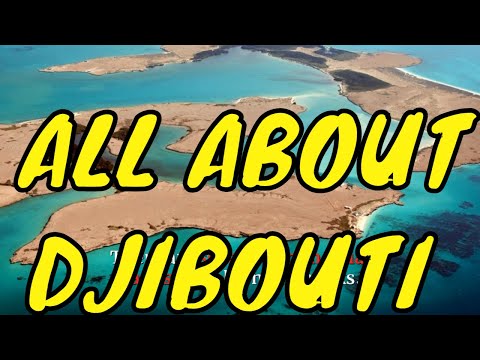
Nestled strategically along the northeastern coast of the Horn of Africa, Djibouti is a country marked by its rich cultural tapestry and significant geopolitical position. With its compact size and a population of approximately 1 million, it stands at the crossroads of one of the busiest shipping lanes in the world — the gateway to the Suez Canal. This unique positioning not only defines its economic and military significance but also colors the daily lives and cultural heritage of its people.
**Geography and Climate**
Djibouti’s landscape is predominantly arid, dotted with low mountains and salt lakes. The country’s most remarkable geographical feature is Lake Assal, which is situated 155 meters below sea level in the Danakil Depression, making it one of the lowest points on Earth that isn’t covered by water. The lake is also notable for being the saltiest body of water that’s larger than 10 square kilometers — even more saline than the Dead Sea.
The climate here can be extreme; while coastal areas experience relatively moderate temperatures, the inland regions can see mercury levels soaring as high as 41 degrees Celsius (105 degrees Fahrenheit) during summer. Such conditions mean that much of Djibouti’s wildlife and vegetation are uniquely adapted to arid environments.
**History and Culture**
Djibouti’s history is a vibrant mosaic influenced by various cultures and civilizations including Somali, Afar, French, Arabian, and even South Asian communities that settled here through trade links. Once part of French Somaliland until it gained independence in 1977, Djibouti harbors a blend of old colonial architecture alongside modern structures.
The mix of ethnic groups such as Somali and Afar has fashioned a unique cultural identity that can be seen in their music, dance, clothing, and cuisine. Traditional music often involves intricate dances accompanied by drums called ‘balwo’, which plays an integral role in celebrations and communal gatherings.
**Economy**
Despite its small size and challenging landscapes for agriculture due to scant rainfall, Djibouti has leveraged its strategic location effectively. Its economy is largely based on service-related activities connected to its status as both a major port hub for goods entering Africa from Europe & Asia and an international naval military base hosting several countries including France, China, Japan, Italy, Spain among others.
Tourism is another growing sector with potential given Djibouti’s dramatic landscapes like ‘the lunar-like terrain’ of Lake Abbe or snorkeling in coral reefs at Moucha Island providing unique attractions for adventure-loving tourists.
**Governance**
Politically speaking, Djibouti operates under a semi-presidential system where considerable power is vested in both a President – currently Ismail Omar Guelleh – who has been in power since 1999 after succeeding his uncle Hassan Gouled Aptidon who led post-independence -and a Prime Minister. It holds multi-party elections although there have been criticisms related to electoral processes.
**Challenges**
Like many nations globally and regionally specific challenges confront this young nation including issues related to unemployment among youth populations estimated at around 60%. Furthermore environmental concerns such as deforestation due to charcoal production for cooking fuel present ongoing dilemmas for sustainable development initiatives.
**Conclusion**
Djibouti remains an enigmatic blend of ancient nomadic cultures intertwined with geopolitical necessity creating both opportunities & hurdles for this resilient nation. Understanding Djibouti in all its facets thus requires an appreciation not just for its physical placement on our globe but also an acknowledgement of how deeply intertwined are its people with rhythms dictated by nature & geopolitics alike.
